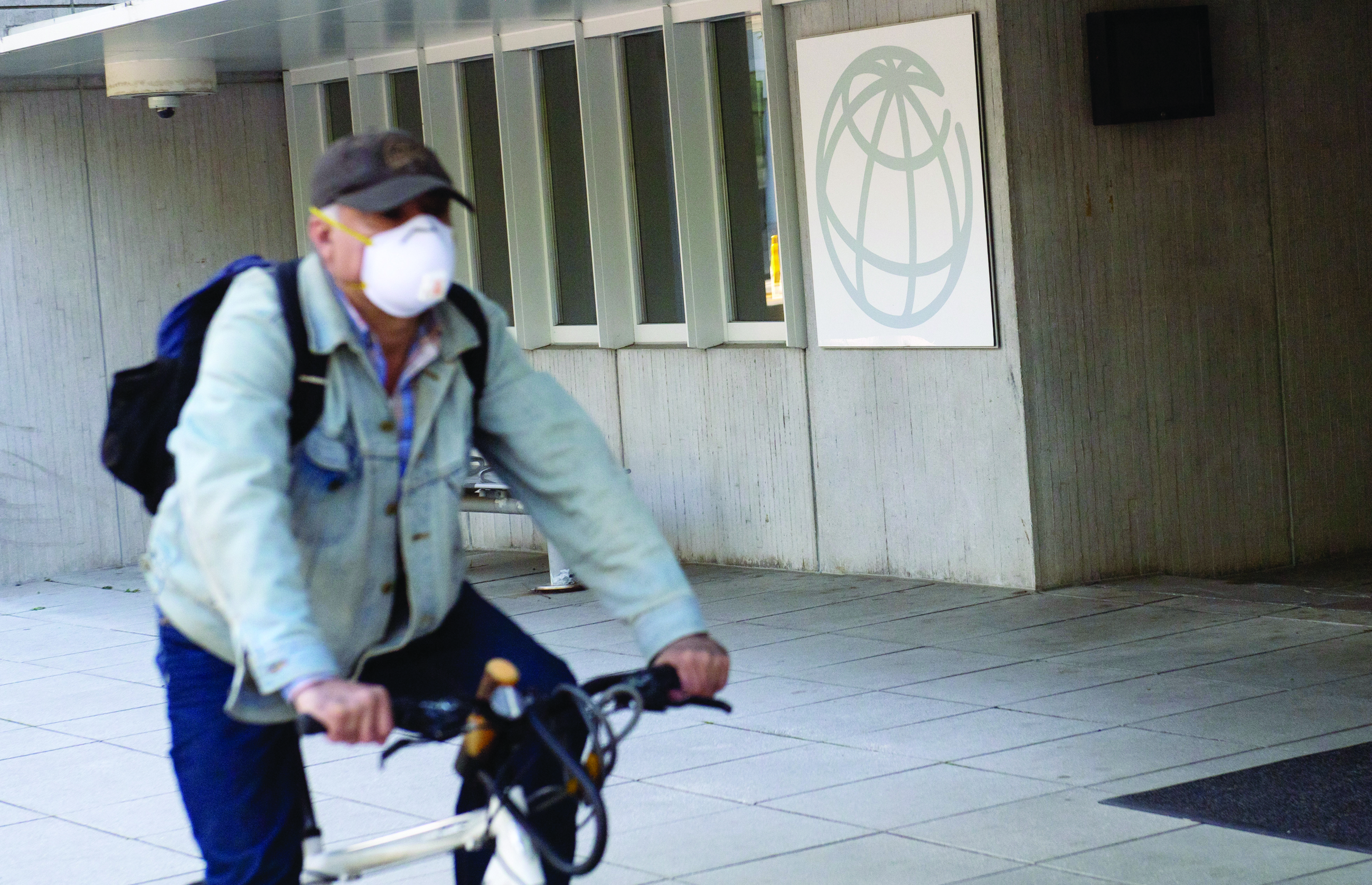
WASHINGTON: Despite some signs of recovery, the global economy faces continued challenges, including the possibility of a second wave of COVID-19, and governments should keep their support programs in place, IMF chief Kristalina Georgieva said yesterday. Activity "has started to gradually strengthen… But we are not out of the woods yet," Georgieva said in a message to G20 finance ministers ahead of their weekend meeting in Saudi Arabia.
The Washington-based crisis lender late last month downgraded its growth forecasts, and now expects global GDP to fall by 4.9 percent this year due to the deeper contraction during lockdowns than previously anticipated, and only a "tepid recovery is expected for next year."
The $11 trillion in stimulus provided by the G20 nations helped to prevent a worse outcome, but "these safety nets must be maintained as needed and, in some cases, expanded," Georgieva urged in a blog post. She highlighted measures including paid sick leave for low-income families and access to health care and unemployment insurance. But the recovery faces risks, she said, including the possibility of "a second major global wave of the disease could lead to further disruptions."
While she acknowledged that the "substantial and rising debt levels are a serious concern," Georgieva said, "At this stage in the crisis, however, the costs of premature withdrawal are greater than continued support where it is needed." Many countries have moved to reopen, so, "Clearly, we have entered a new phase of the crisis," she said in a blog post, adding it will require "further policy agility and action to secure a durable and shared recovery."
Many jobs that have been lost amid the pandemic may never come back, so workers will need support and training to move into new sectors. "The bottom line is that the pandemic is likely to increase poverty and inequality," she said but noted that policymakers have "a once-in-a-century shot" at building a better, greener and more equitable world.
No ECB stimulus now
European Central Bank governors are expected to refrain from doling out fresh stimulus medicine yesterday, hoping EU leaders will do their bit to shore up the crisis-hit region with a huge coronavirus recovery plan. The ECB has taken unprecedented action to cushion the economic blow from the pandemic, which has left the eurozone facing its worst downturn since World War II.
But ECB chief Christine Lagarde hinted last week that the governing council would take a breather to gauge the effectiveness of its measures so far. "We have done so much that we have quite a bit of time to assess (the latest data) carefully," she told the Financial Times.
The ECB meeting comes on the eve of a July 17-18 European Union summit in Brussels where leaders will wrangle over a proposed 750-billion-euro ($847-billion) recovery fund to kickstart the bloc's battered economy. Lagarde, who has repeatedly urged governments to underpin central bank efforts with fiscal policy, has called the plan a potential "game changer".
The fund would be financed through joint EU borrowing and consist mainly of grants for the hardest hit member states. But the proposal is fiercely opposed by Denmark, Sweden, the Netherlands and Austria who want to rein in the spending and insist on loans rather than grants, making agreement this week uncertain.
Crucially, the fund has the backing of German Chancellor Angela Merkel whose own government has ditched its no-new-debt dogma to unleash 130 billion euros in fiscal stimulus for Europe's top economy. In Washington, the International Monetary Fund urged governments not to let up, as "the costs of premature withdrawal are greater than continued support where it is needed," its chief Kristalina Georgieva wrote in a blog post.
With the focus on national capitals, "don't interrupt your vacation for the next ECB meeting," ING bank analyst Carsten Brzeski said. "It's all about fiscal policy and the summit on the European recovery fund."
Emergency bond buys
At last month's governing council meeting, the ECB expanded its pandemic emergency bond-buying scheme known as PEPP by 600 billion euros to 1.35 trillion, and extended it until June 2021. The goal of the government and corporate debt purchases is to keep credit flowing and encourage spending and investment in the 19-nation eurozone.
It comes on top of the bank's already ultra-loose monetary policy of historically low interest rates, cheap loans for banks and a pre-pandemic bond-buying scheme to the tune of 20 billion euros monthly-all designed to bolster economic growth and push up stubbornly low inflation. - AFP











